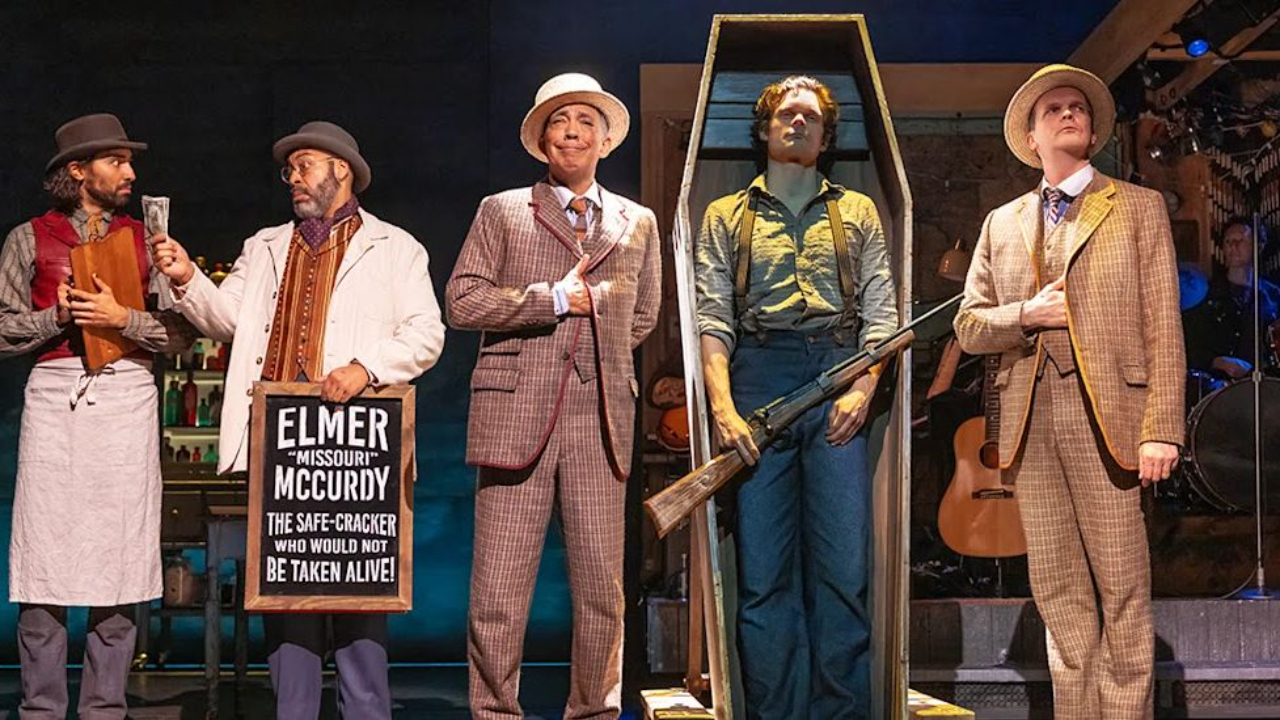
The Broadway Musical is a Dead Outlaw
Well… it’s official. It’s summer. The Tonys are already a wistful memory, a number of great shows are sadly drifting away (so long, Dead Outlaw, you were a beautiful thing…), and the rumor mill is already grinding away about all the stuff coming up for next season (who’s excited for The Queen of Versailles?!).
In all of the wrap-ups and look-forwards, I was most struck by a reel posted by Ken Davenport himself (I know, I know… but you can check it out here). In it, he congratulated the producers of The Picture of Dorian Gray on their recoupment, and noted that it was the seventh show to recoup from this latest Broadway season (seventh? holy cow… Broadway is BACK!).
HOWEVER
All of the shows that recouped:
Are plays
Had a star (well, all but one)
So where does that leave all of us musical theater Writers? Are we all destined to be Dead Outlaws, appreciated and even lauded Off-Broadway, but unable to find our audience or make any money if we make the jump to Broadway? How can we succeed when even shows based on enormously popular IPs fail to move the needle (sorry, Smash - though I could write a whole other piece about why that show didn’t hit its marks)?
How can we possibly find financial success with our musicals?
Well… the answer (as Dead Outlaw found out) is probably just not on Broadway. Not now anyway.
I’m not saying this to pour water on anybody’s ambitions to hit the Great White Way with their magnum opus. But if you’re hoping to do so and remain financially solvent… well… look at the numbers. The bottom line is that Broadway is the most expensive place to produce your work (file that under D for “duh”), and not every piece is built for the Broadway stage.
I loved the energy and concept of Dead Outlaw (I had my problems with its structure, but that’s another email), and it positively busted out of the doors downtown. However, on Broadway it was just too small. It felt like exactly what it was: a small, quirky, impactful piece put on a stage that was too big for its design and playing to a house that was way too big to pick up its vibe. It’s a downtown show. I understand the desire to bring it to a bigger, broader audience, but the scope of it was all wrong.
Add into the mix the fact that there is an extraordinary dissonance in the theater-going audience at the moment, and we have even more reasons to pump the brakes on our midtown hopes. There is an enormous clamoring for “more original work, less derivative adaptations!” Yet far fewer people are actually supporting the original work than the big names. Where were the people flocking to this incredibly original show? Where were they for Real Women Have Curves?
They were all seeing George Clooney. Denzel Washington. Sarah Snook.
Familiar faces in shows with familiar names.
We’re not quite at the point of fully embracing the experimental or weird on Broadway yet. We’re still craving pure entertainment, the dopamine hit of seeing someone you already know do something familiar (even the success of the beautiful Maybe Happy Ending was, in part, driven by the fact that many folks will just see anything that Darren Criss is in - and the fact that it was an unconventional and stunning love story about robots was likely just a pleasant surprise).
Of course, this is all ignoring the tactical brilliance that is Operation Mincemeat. But they’re the exception to the rule here (and what they took from their overseas roots is likely part of their success: shorter run announcements with multiple extensions providing a sense of scarcity and exclusivity akin to trying to fight for that Othello ticket) and even they haven’t recouped yet (at least not that they’ve announced).
I’m not here to write an elegy for the great Broadway musical. It’s still alive. It just may not be the time for it to hit its zenith again. And we as creators may need to adjust our sights to find success and financial gain off-Broadway or in secondary markets (EVERYTHING is cheaper overseas and in your local community).
We also need to get out there and support the art that is doing something new. If you’re one of those people saying “oh man, Ragtime AGAIN?” put your money where your mouth is and support the little guys and gals. Bring your friends to see that up and coming new musical. You’ll likely be able to get five tickets to that show for the cost of one Broadway ticket, and your money will have a much greater impact on those smaller shows’ bottom line.
Change the audience, change the industry. Then we’ll see more original musicals celebrating their Broadway recoupments.
What are your thoughts for revitalizing the economics of the Broadway musical? Let me know!
Write on,
Eric Webb

